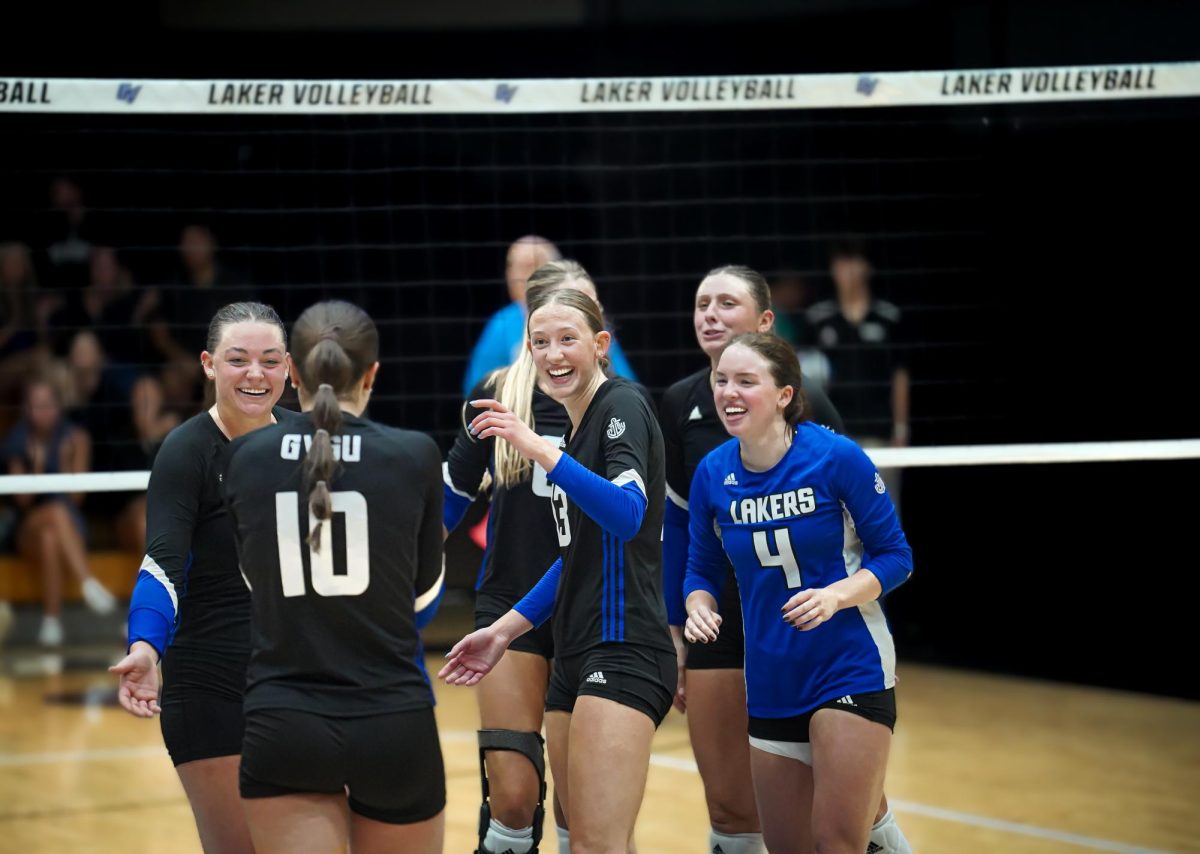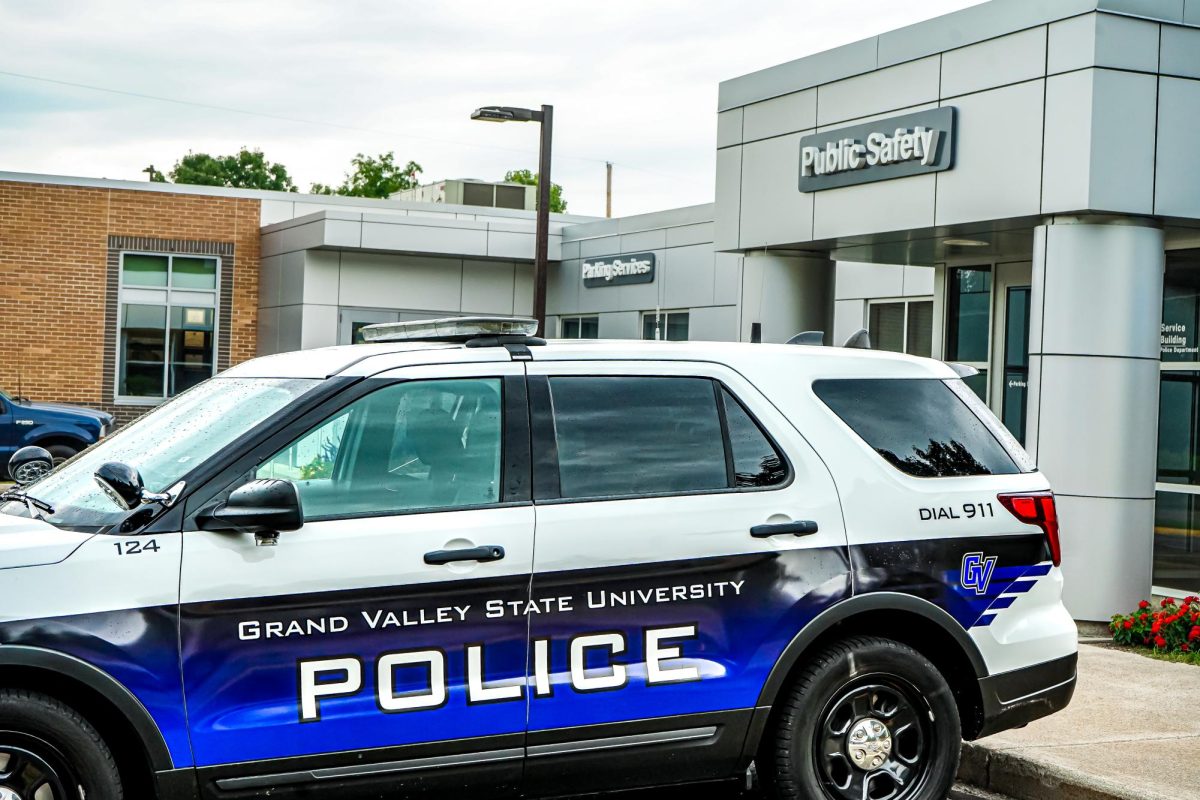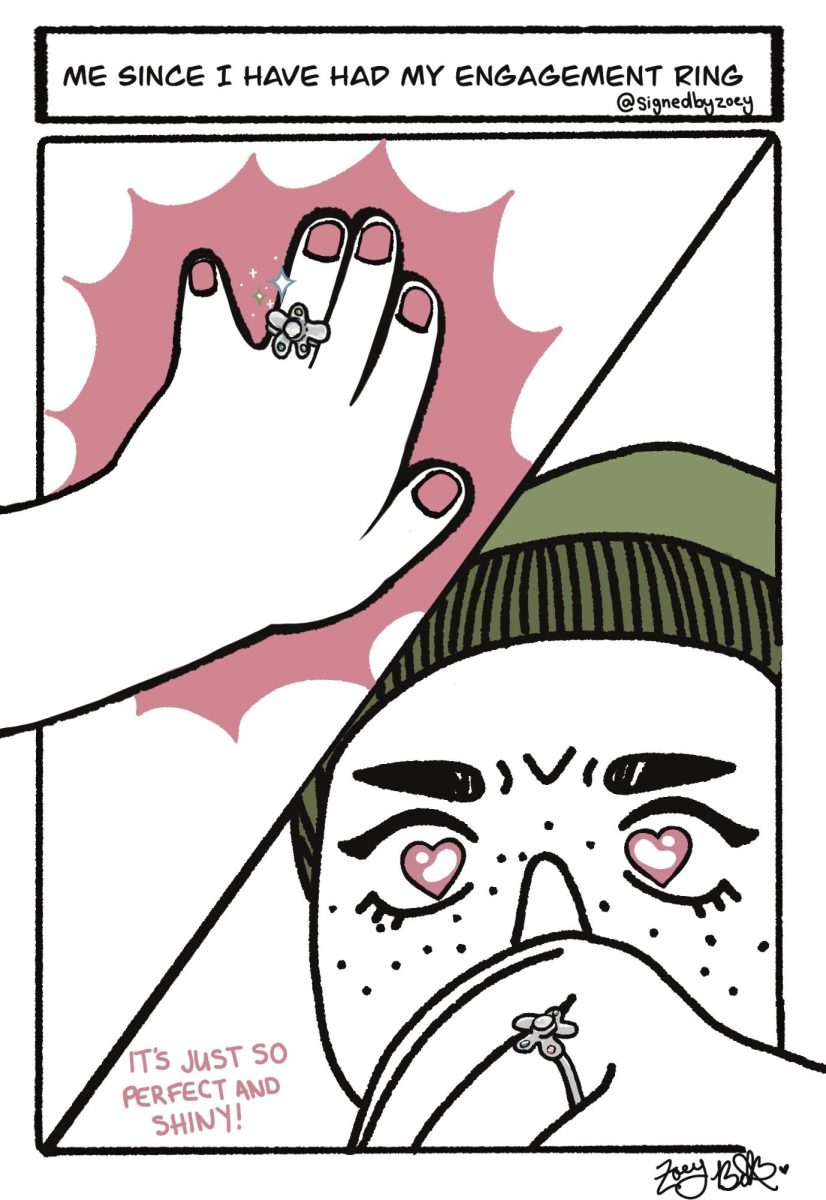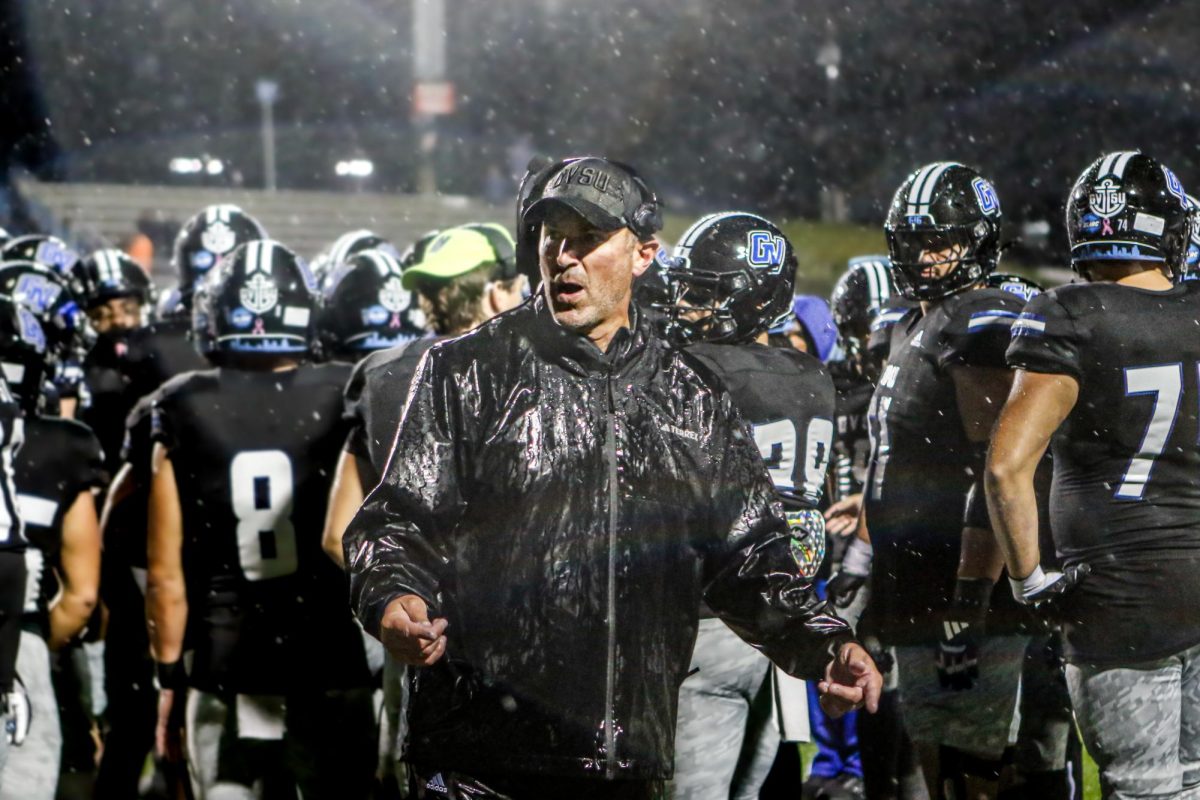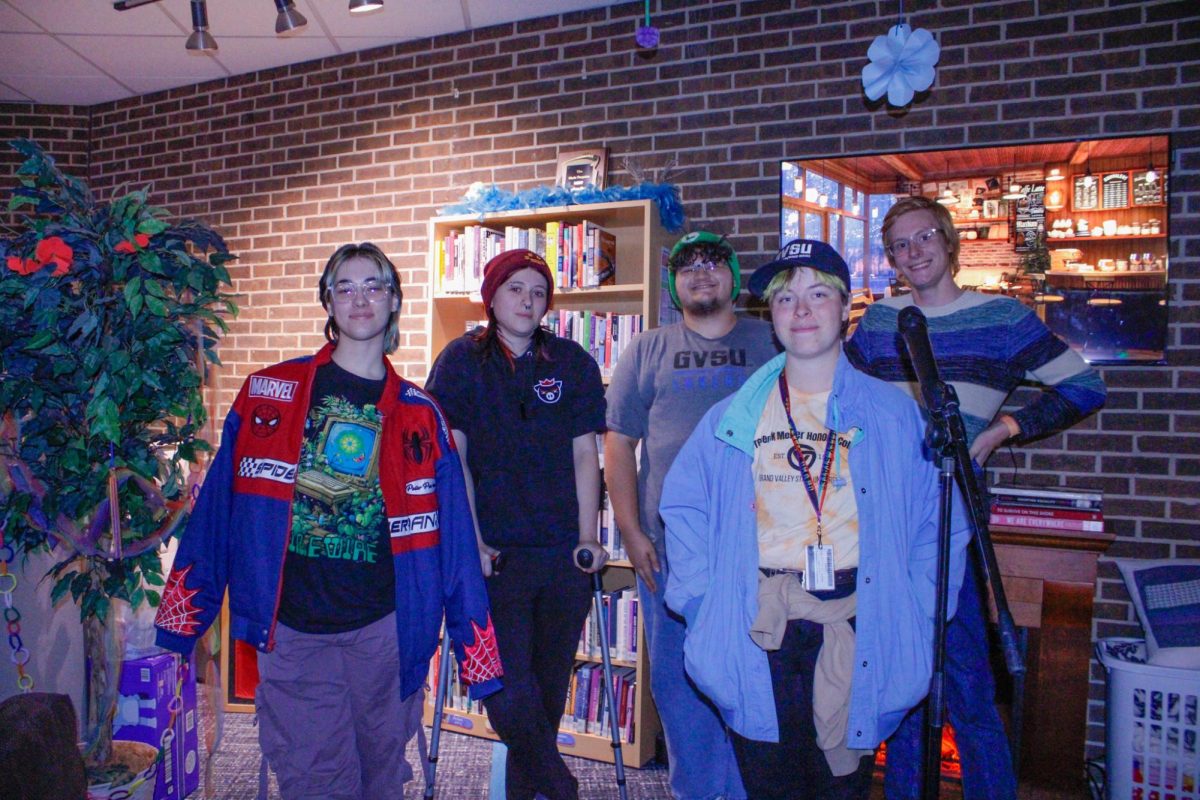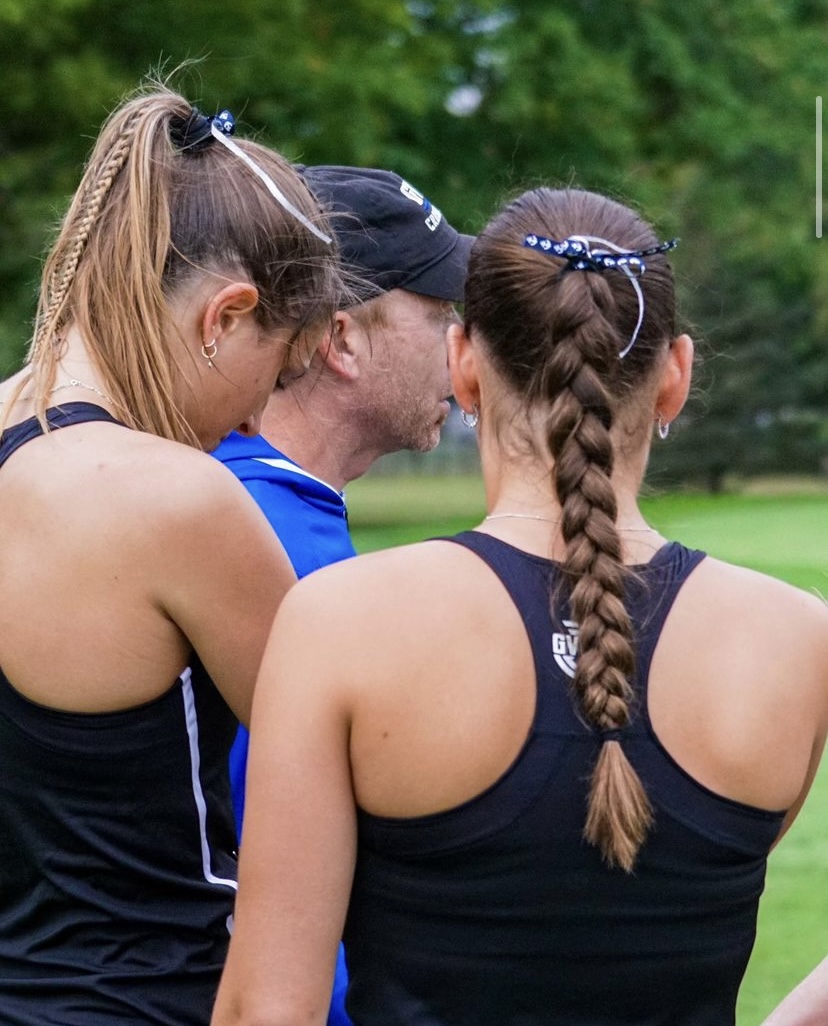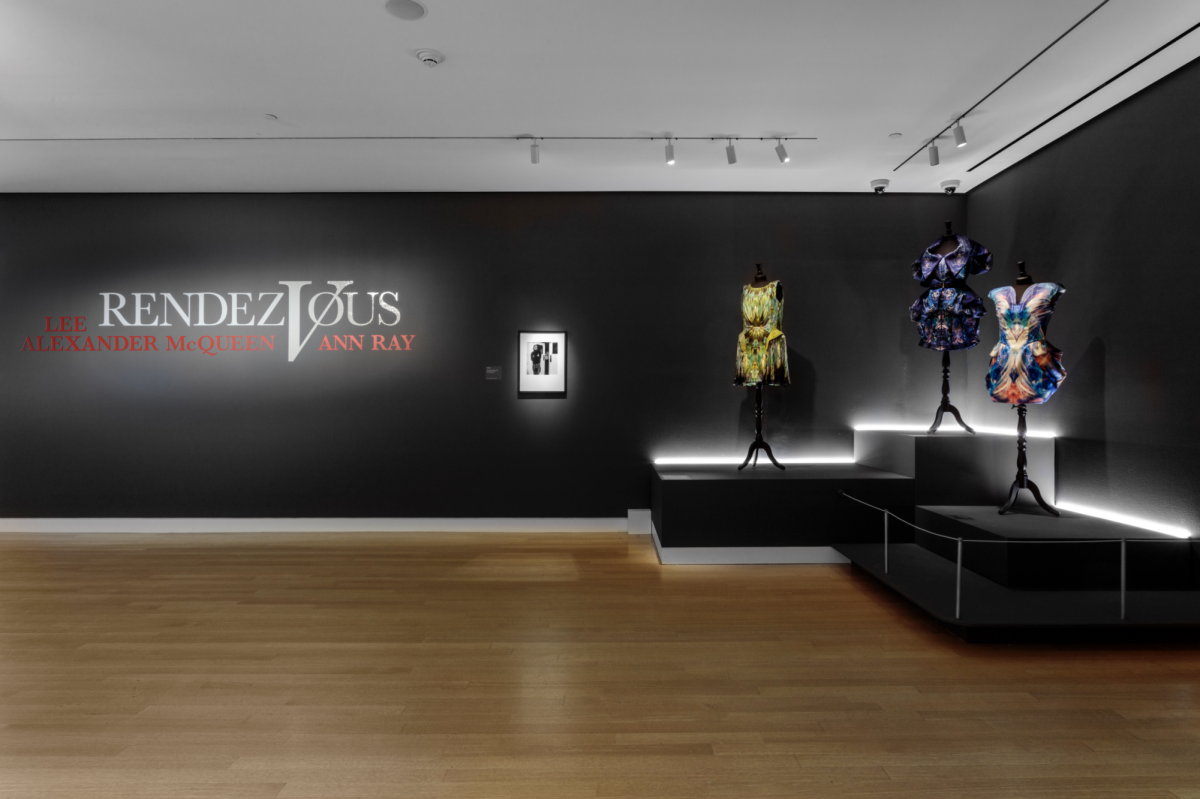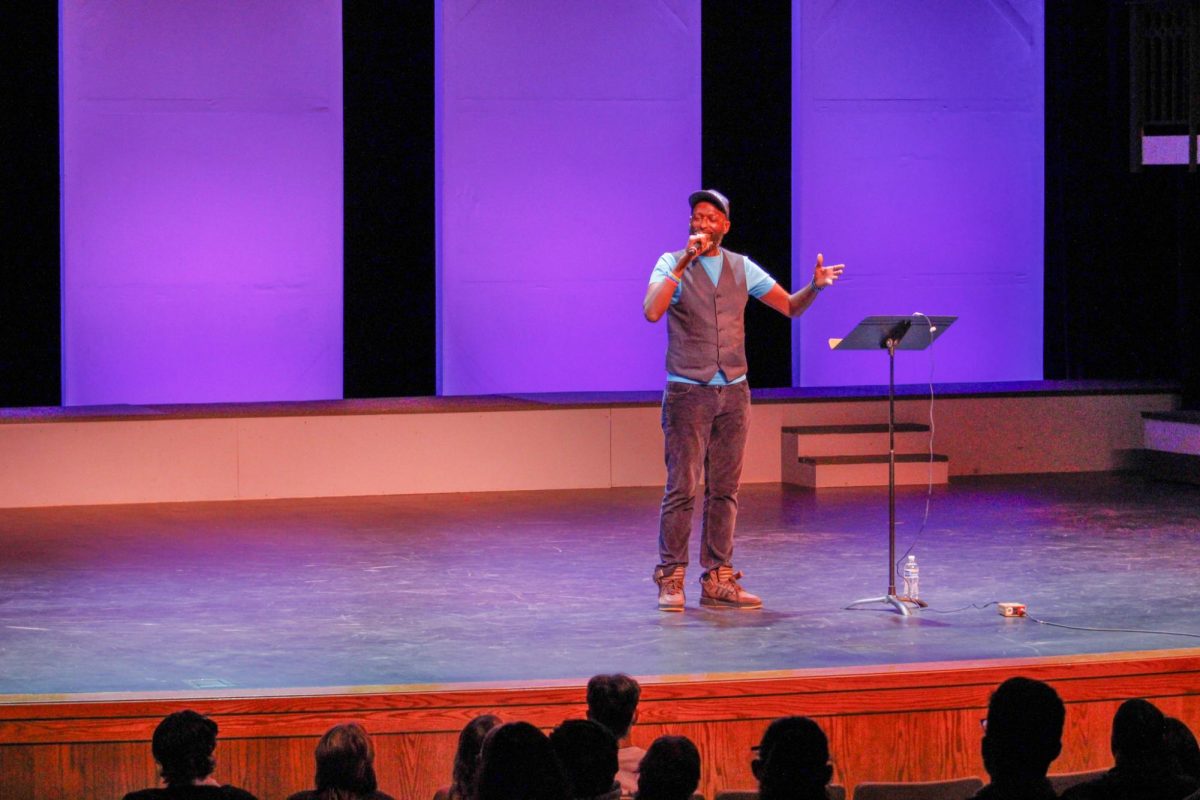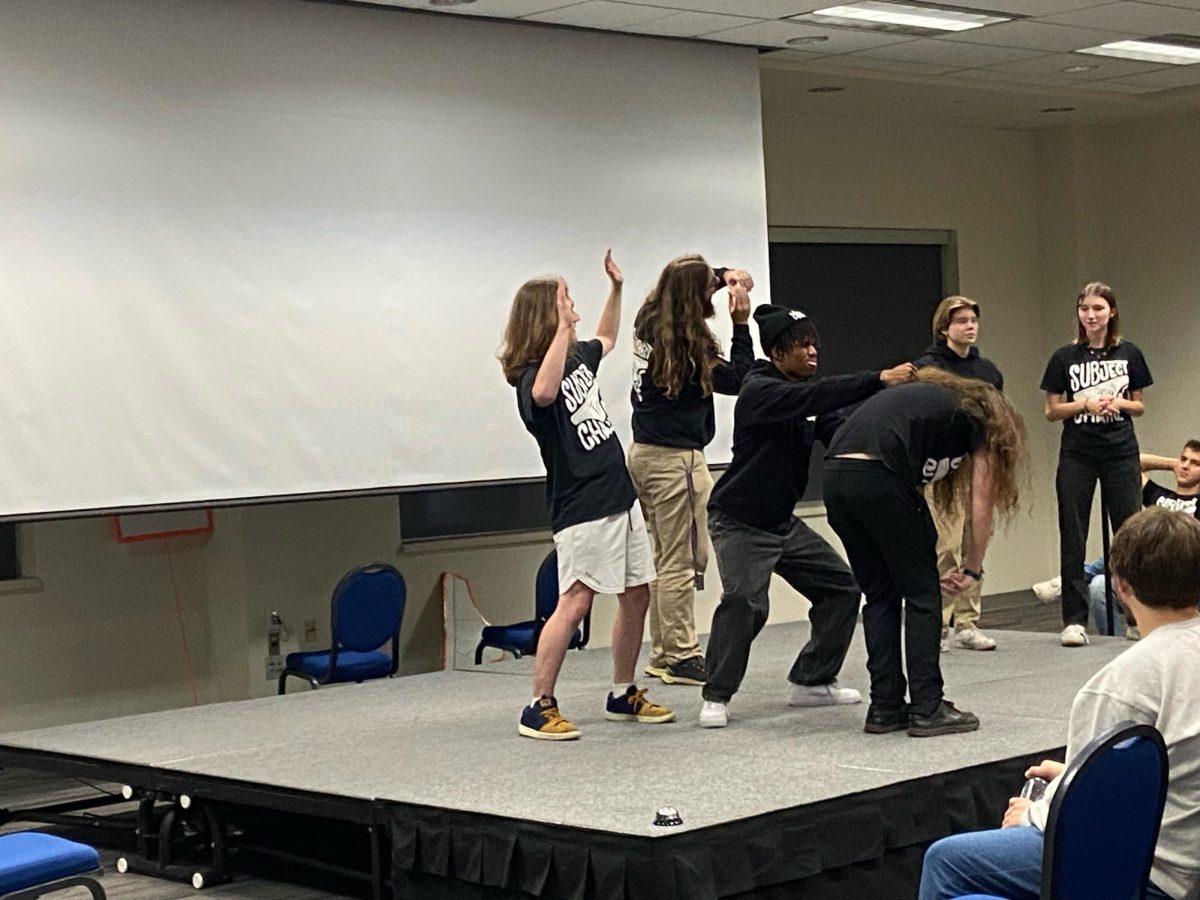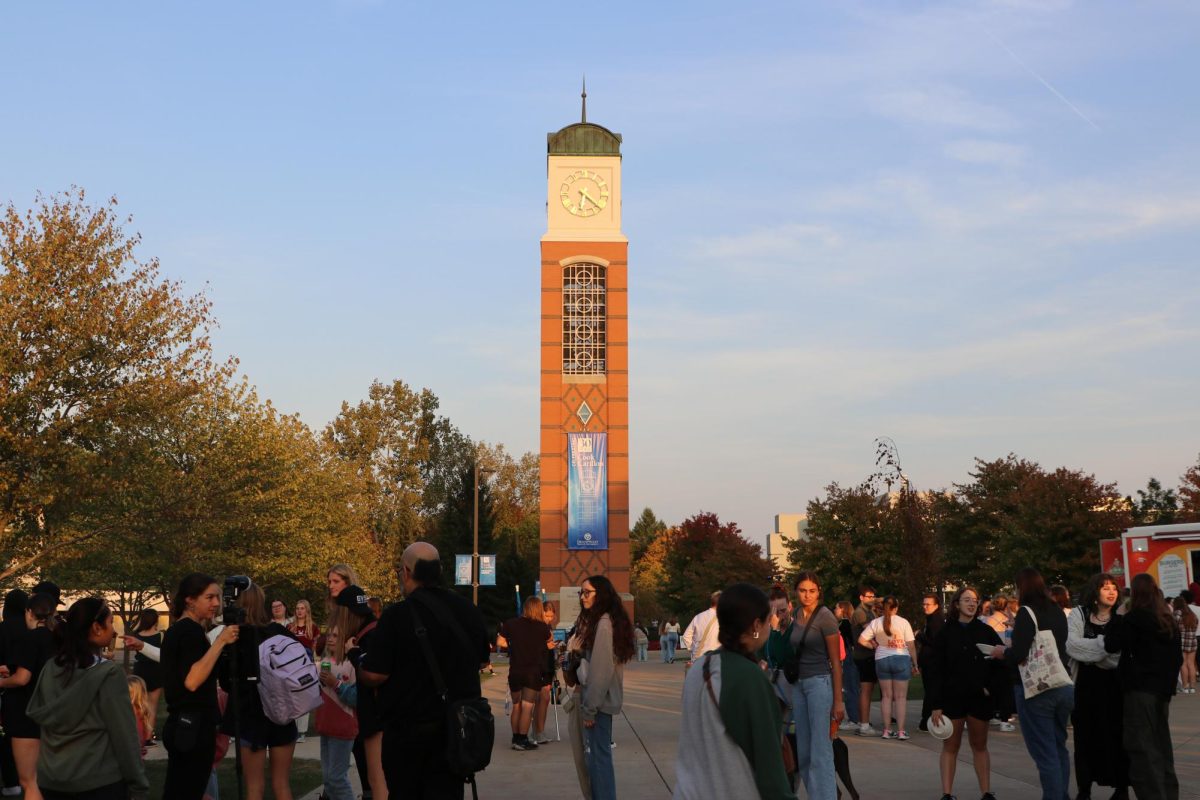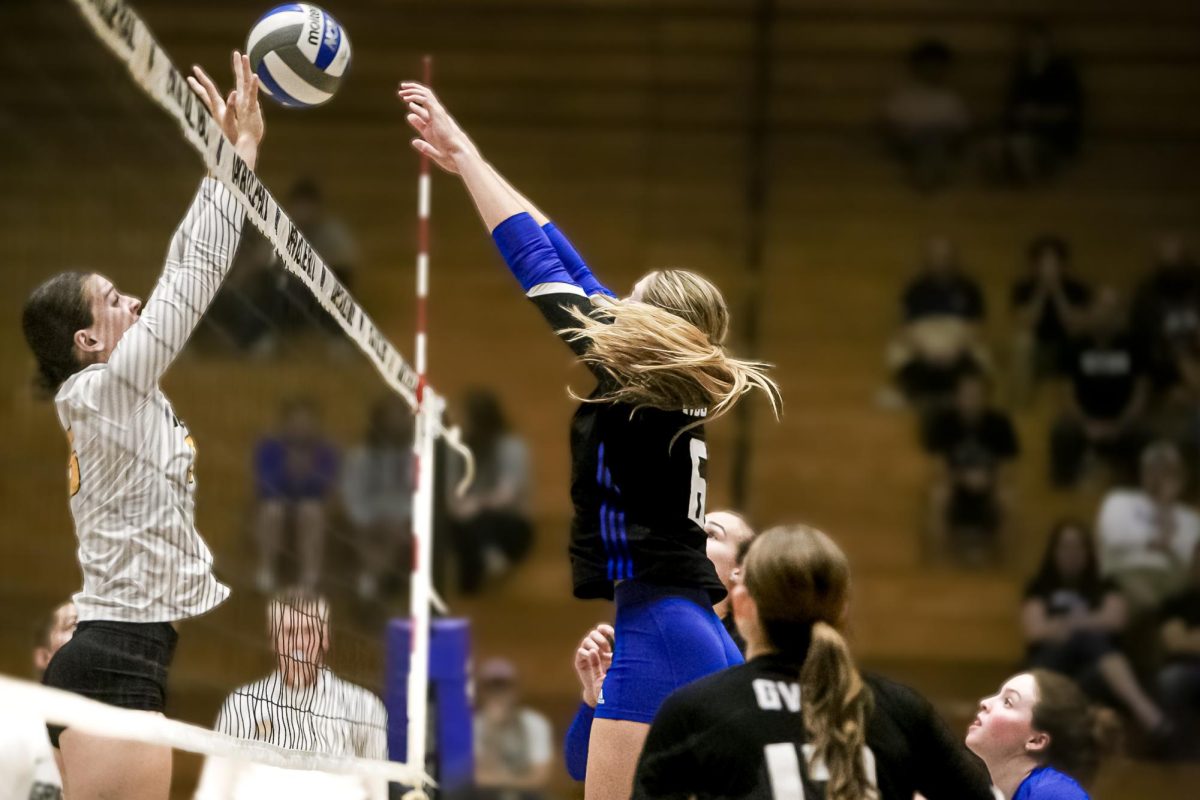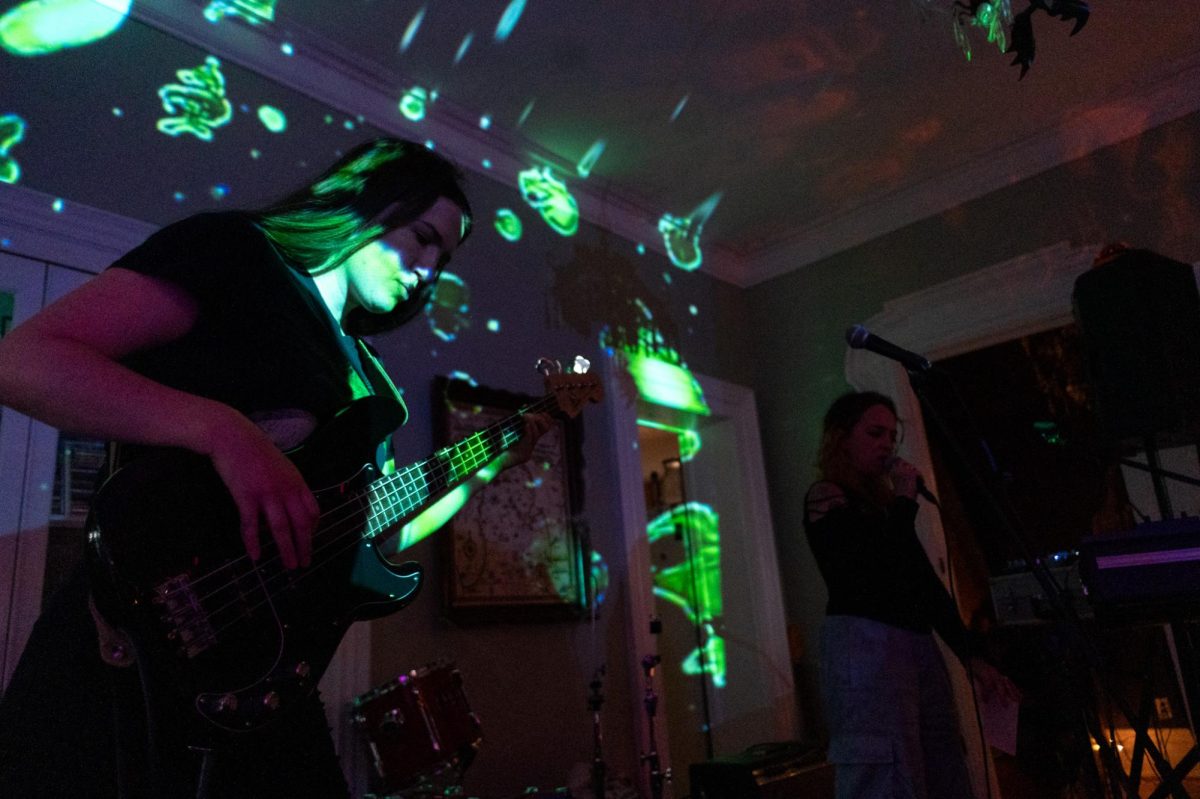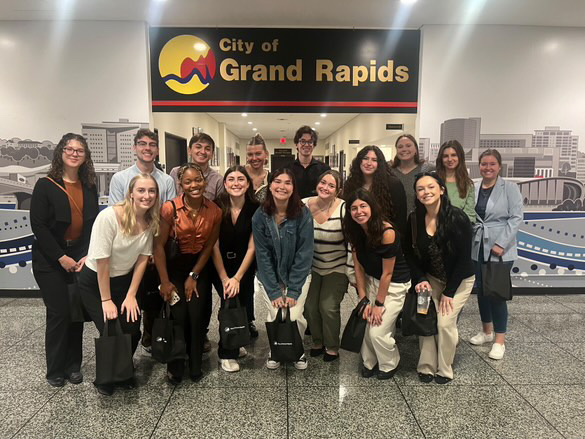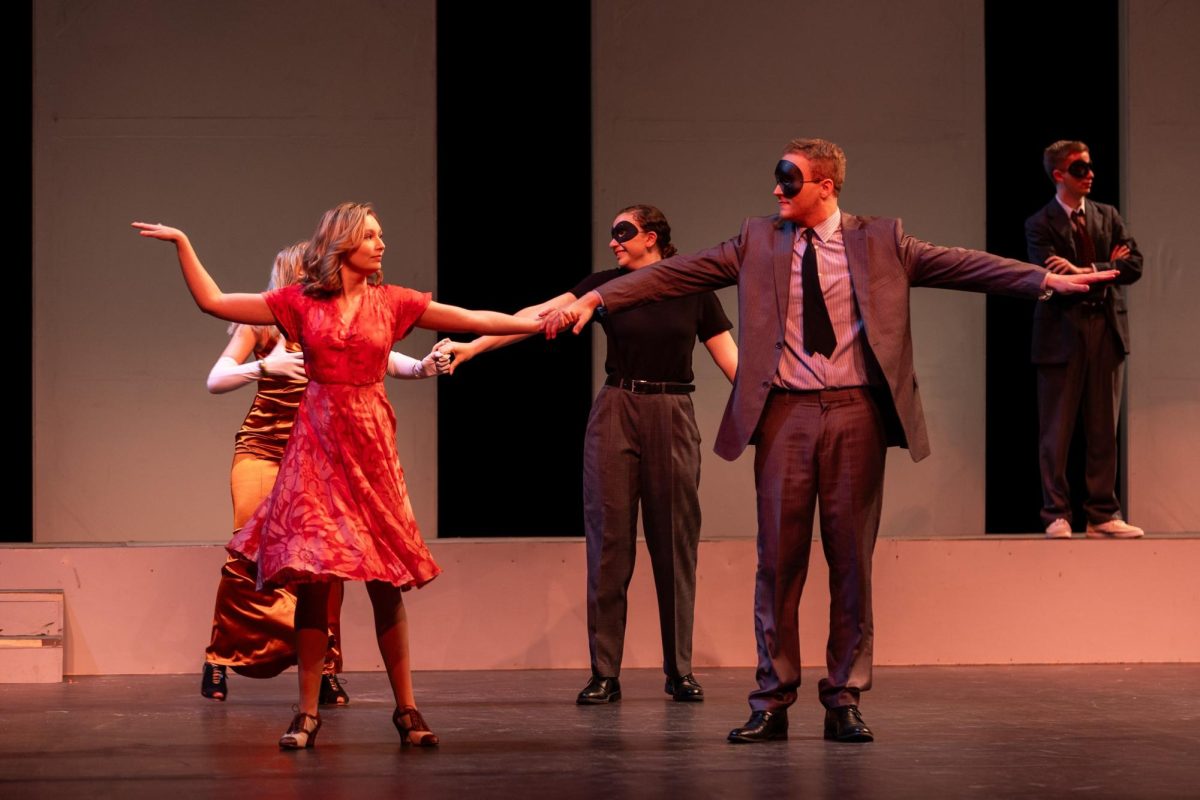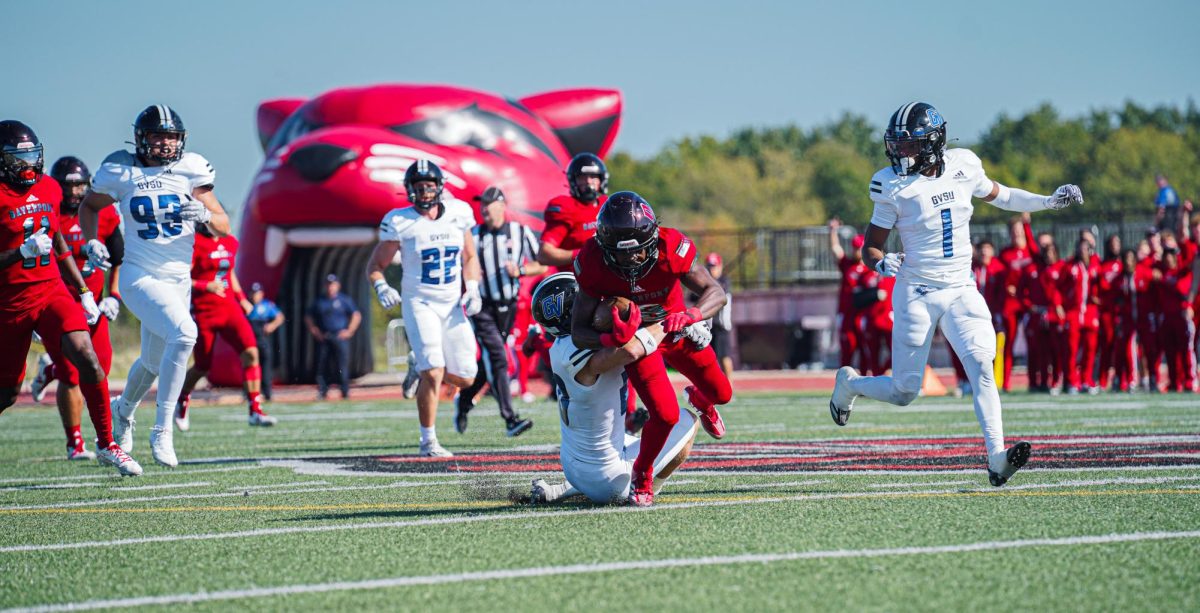Common Heritage grant allows for oral history project at GVSU
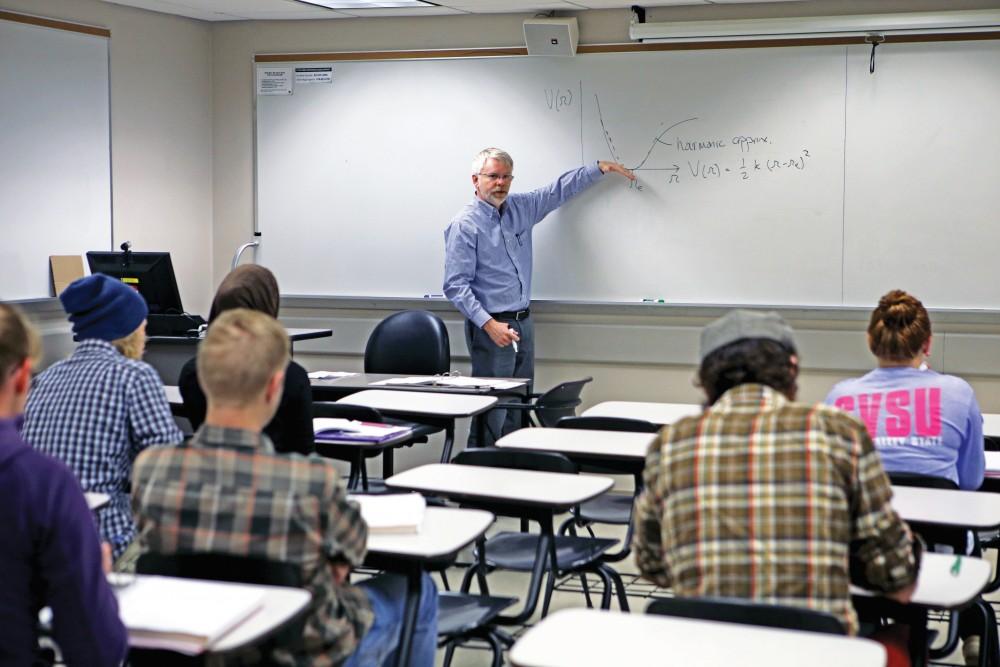
GVL / Emily Frye Professor George McBane, Ph.D., begins teaching his physical chemistry class on Oct. 9th. Professor McBane is the head of the chemistry department here at Grand Valley State University and also continues to conduct outside research.
Jan 18, 2016
Michigan is known for it’s agriculture, whether that’s the cherries of Traverse City or the apples of West Michigan. Grand Valley State University is diving into the history of a lesser-known Michigan crop – sugar beets.
The Brooks College of Interdisciplinary Studies and the Kutsche Office of Local History have been involved in a grant that is the first of its kind — a historical storytelling grant called Common Heritage, granted to the university through the National Endowment for Humanities.
The grant is $11,500, with a matching gift from GVSU, and will allow a group of professors and staff members to work together to dive into the history of migrant workers in the agriculture business in Oceana County.
The project will be based around curating oral histories of migrant-settled families in the Hart, Shelby and Walkerville areas.
Nora Salas, a history professor, is one of the faculty members involved in the project. Her area of focus is the history of Latinos in Michigan, so she said that she got involved out of pure interest for the subject matter.
“It’s really important because most historians want to get the best, most full possible portrait of the lived experience of people in a particular area,” she said. “Sometimes if people don’t think of themselves as historical subjects, they don’t save personal material. But these people are a part of history, so we’re doing that for them.”
Melanie Shell-Weiss, director of the Kutsche Office of Local History, is spearheading the project. She said the absolute lack of research done on migrant workers in Michigan when they have been such a necessity to the economy was one reason she got involved with the project.
“This matters in our classrooms and in terms of our general knowledge, but it also matters in ways that are not academic,” she said. “Part of what’s been on (our) minds is thinking of this history as a way to build community and to get a younger generation to understand that not only do they belong in Oceana County, but they share a common community.”
The idea for the project was always focused on migrant workers, as Oceana County has one of the highest proportions and one of the longest histories of Latino citizens in Michigan. Many of these families were seasonal workers on sugar beet farms that eventually settled in the area, branching out to work in other industries, adding to the local economy and cementing their history in Oceana County.
“The point of this project is to not only record their stories, but reconstruct this history, the larger framework of why they are here and what’s been their connection to social life in the Oceana County area,” said Andrew Schlewitz, a Latin American studies professor involved in the project.
The project team will work with the Oceana County Historical Society and the Oceana County Hispanic Center, training the employees there to use audio equipment so they can conduct interviews and edit the audio on their own.
Work on the project has started already, and the team hopes to begin to conduct interviews by the end of the month or the beginning of February. The whole project revolves around what Shell-Weiss calls a history harvest on June 18. That day, the project team and volunteers will be in Hart, Michigan conducting interviews all day, harvesting the history of the people in Oceana County.
Along with the team of professors, GVSU students will help out with the project, translating and photographing materials lent to them by the subjects of each story. After the recording process is over, the project will be housed in GVSU’s digital archives, since the university has the available long-term storage needed for the project.
For students who are interested in volunteering to translate or to help out on the project, contact Melanie Shell-Weiss at [email protected].



